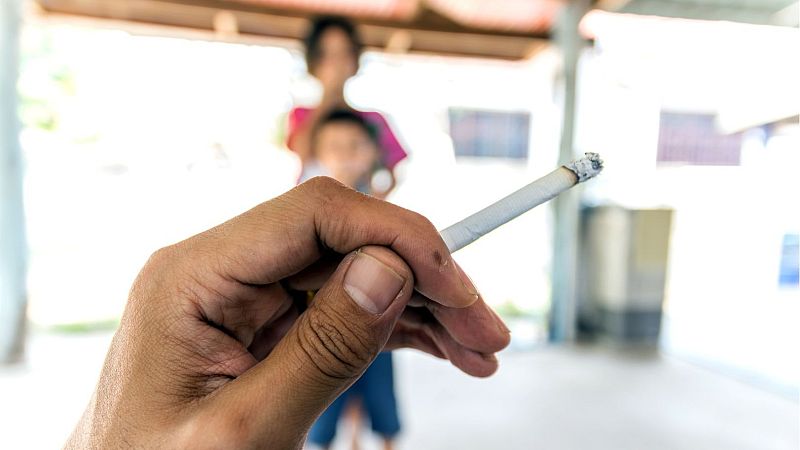
More than a quarter of a million deaths among children under the age of five could have been averted in lower-income countries in a single year – if those countries had hiked their existing cigarette taxes, a new analysis has found.
Exposure to secondhand smoke can harm young children’s health, exacerbating asthma, impairing their lung function, and making babies more vulnerable to sudden infant death syndrome (SIDS).
It can also affect them before they’re even born, raising the risk of preterm birth and low birthweight.
To help reduce smoking rates, the World Health Organization (WHO) recommends that countries tax cigarettes at a rate of 75 per cent of their retail price. But few lower and middle-income countries have actually done that.
According to the new estimates, which were published in The Lancet Public Health journal, about 281,000 deaths among kids under age five could have been avoided with cigarette taxes at the 75 per cent mark – 6 per cent of the more than 4.7 million young children who died in 2021 across the 94 countries included in the study.
“The pathway from tobacco taxation to child health is a complex thing,” Márta Radó, the study’s senior author and an assistant professor at the Karolinska Institute in Sweden, told Euronews Health.
But the findings indicate “this can protect children, especially the most vulnerable children,” she added.
Notably, the study found that higher cigarette taxes would boost child survival rates more among lower-income people than among their wealthier peers, reducing inequalities in tobacco-related child deaths in these regions.
But by 2020, they said, only 10 of the 94 countries in the study had raised cigarette taxes to at least 75 per cent of their retail value.
Avoiding 74,000 deaths in poorest families
In the remaining 84 countries, raising taxes could avert nearly 70,000 child deaths in the poorest families and more than 36,000 deaths in the wealthiest groups in 2021, the estimates show.
“That is quite significant,” Dr Andrew Agbaje, an associate professor of clinical epidemiology and child health at the University of Eastern Finland who was not involved with the new study, told Euronews Health.
But he noted that other factors are bigger contributors to under-five mortality in lower-income countries, such as infectious diseases like diarrhoea or mosquito-borne diseases.
“It is good news that raising taxes may have some effect, but it is not the magic wand to solve all the problems,” Agbaje said.
Even so, other research has shown that tobacco control can make a sizable dent.
Some of the same authors for the new study had previously looked at how raising cigarette prices could affect infant mortality across the globe, and in 23 European Union countries specifically.
In both cases, they found that higher prices meant more babies survived past their first birthdays.
Meanwhile, Agbaje said that beyond curbing exposure to secondhand smoke in the womb or during childhood, more should be done to keep people from succumbing to tobacco-related health problems later on.
“If we succeed [at raising taxes], do we have sufficient mechanisms to prevent children from eventually picking up tobacco?” he asked.
“Otherwise, it will undo the damage that we are trying to prevent at the very beginning”.







